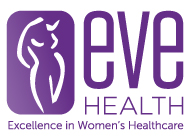Hormones in pregnancy are essential for keeping your little person growing and developing, but they also play a pivotal role in the development of gestational diabetes (GDM). National Diabetes Week, which runs from July 14 -20th is a good time to learn more about this condition.
Being told you have gestational diabetes can come as a shock and is often associated with feelings of blame. Gestational diabetes is caused by all the yummy hormones our placenta and body release during pregnancy. These hormones allow our main source of energy – glucose, to travel to our baby to help it grow strong.
These hormones including progesterone are designed to create insulin resistance in our bodies – which is why pregnancy is almost like a state of pre-diabetes. This is why a healthy diet and exercise is always recommended in pregnancy. Sometimes in pregnancy our levels of insulin resistance is too high and this leads to hyperglycemia – or high glucose levels which is the true definition of diabetes.
Insulin is a hormone created by our pancreas and is released as soon as we start eating. It is the key that allows glucose to enter every cell in our body to fuel it. If we have insulin resistance, then glucose cannot enter out cells to be used as energy and hyperglycemia continues and leads to high levels of glucose in your baby’s blood stream as well. This can lead to complications that can impact your pregnancy, your birth, and you and your baby’s future. This is why it is important to monitor your glucose levels in pregnancy to help prevent ongoing hyperglycemia.
Diet changes and regular activity are always the first step to maintaining good glycemic control. Sometimes our levels of insulin resistance in pregnancy is simply too high and some women will need medications or daily insulin injections to keep glucose levels normal. It should never be seen as a failing if you need medication or insulin to control your glucose levels as the hormones that create our insulin resistance are the same ones that are maintaining a healthy environment for our baby to grow.
Low carbohydrate diets are essential to good glycemic control however this does not mean NO carbohydrates. It is all about knowing the difference between healthy long active carbs and less active short acting carbs, as well a good balance of protein, fats and micronutrients. An education session with Rachel will go through what testing your glucose levels looks like, a seven-day healthy eating plan for either vegetarians or non-vegetarians and food and exercise advice. Medicare rebates are available with a referral, so speak to your doctor or midwife.
For more information about Gestational Diabetes Click Here
Rachel practices out of our Eve Health Clinic in Spring Hill

Endorsed Midwife (RM BMid) and Diabetes Educator
Comments are closed.
